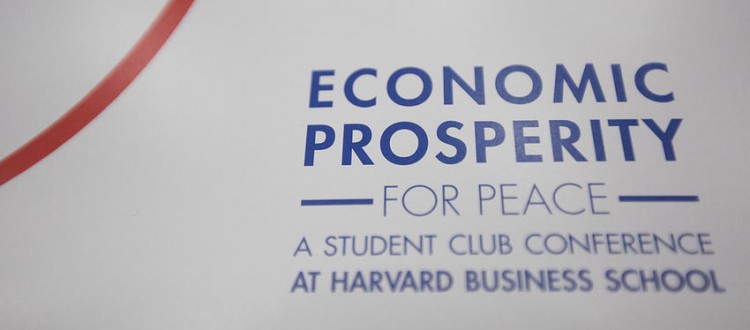Use the economy for cooperation, not for boycotts
In the absence of political negotiations, civil society should take the lead and start by building business communities.
| Suggested Reading | Conflict Background | GCCT |
By Arik Segal
US President Barack Obama’s recent statement, in which he expressed pessimism about reaching peace in the Middle East during his term, did not come as a surprise. Indeed, domestic politics and regional instability imply that the deadlock in negotiations will not end anytime soon. The continuous turmoil in the region takes the international attention away from the Israeli-Palestinian issue and reduces instances of external pressure. Moreover, the growing presence of jihadist groups on Israel’s borders means that the chances of it withdrawing from any territory are slimmer than ever.
In the national political arena, the newly elected Israeli government is expected to be a bit more hawkish than the previous one was. Israeli voters seem to have lost hope of any progress in the peace process and have focused their electoral zeal on socioeconomic issues instead. Likewise, Palestinians have lost hope for change, opting however to maintain the security cooperation with Israel, thereby maintaining the status quo.
This quagmire provides an incentive for those who do believe that peace is possible to try and find new paths for making it happen. Such was the motivation of Arab and Israeli Harvard Business School students, who organized a conference last month and invited Arab and Israeli businessmen and entrepreneurs who have a common interest in promoting well-being and prosperity as the bases for arriving at peace and security.
The conference, called “Economic Prosperity For Peace”, gathered prominent Israeli and Palestinian business leaders who are active in the bilateral economic sphere. Four keynote speakers as well as four panels presented a vibrant picture of many small and large scale initiatives aimed at promoting the inclusion of Palestinian citizens of Israel in the Israeli information and communications technology (ICT) industry, as well as cooperation between Israeli and Palestinian businesses.
Despite the positive atmosphere and a sense of optimism, the most common question asked by skeptics was how economic cooperation could have a wider scalable impact on the public and the government in order to create a visible change. Increased employment and a rise in the standard of living can decrease motivation for violence and confrontation, but it cannot answer basic needs such as recognition or national identity. In this context, the biggest barrier to altering negative perceptions of respective communities remains the inability to expose such initiatives and publicize Israeli-Arab business cooperation due to the fear of being seen as “collaborating with the enemy.”
The answers to those challenges should be carefully discussed in future conferences and workshops, yet the advantages of using the economy as a means of cooperation and not one of boycott is still more effective in terms of conflict resolution, mainly because it benefits both sides. Promoting economic boycott and sanctions could yield some diplomatic results and force Israel to be more flexible in peace negotiations, however it will hardly have a positive impact on Israelis’ need to have the Palestinians accept the existence of the Jewish state and live peacefully side by side. Economic cooperation, however, beginning with the founding of small business communities, will provide both peoples with material benefits and build trust, which is a more effective strategy in bringing a long-term peaceful solution to the Israeli-Arab conflict.
Arik Segal is a conflict management expert and the founder of Segal Conflict Management.
This article was first published on I24 News.




















For few months now, official representatives of the Israeli government and defense establishment have been holding a real dialogue with the Islamic terrorist group – Hamas – in a bid to reach a long-term calm on the Gaza border. These secret talks have been “partly direct” and partly through Qatari and European mediators. From Gaza’s side local businessmen have been especially active. The outcome might be a longer calm period or even a Gaza state, while Fatah led Palestinian authority on West Bank will stay as bystander or try to build its own state with their unitary actions – real new content to two-state solution. The critical aspect is how the balance between political and military of Gaza will develop. More in my article “Gaza State Under Construction, West Bank Remains Bystander” – https://arirusila.wordpress.com/2015/04/30/gaza-state-under-construction-west-bank-remains-bystander/